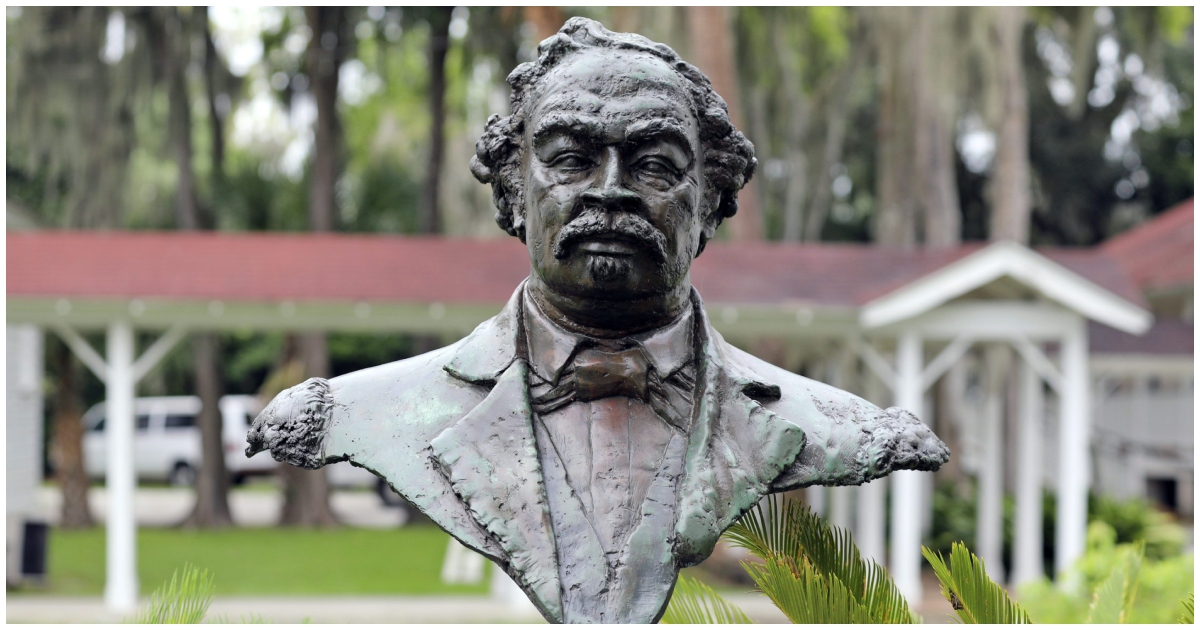Robert Smalls, a Civil War hero and statesman, will soon be honored in a historic moment for South Carolina. The state plans to install its first individual statue of an African American on the Statehouse grounds. Smalls, who famously escaped slavery by commandeering a Confederate ship and sailing to freedom, will be immortalized for his courageous actions and lifelong leadership.
This memorial has been a long time coming, and it represents a major step in recognizing South Carolina’s Black history and the fight for equality. Smalls’ legacy extends far beyond his daring escape, highlighting his role as a leader in post-Civil War politics and his fight for civil rights.
Honoring a Remarkable Hero: Robert Smalls’ Daring Escape
In May 1862, Robert Smalls made a bold decision that would change his life and the lives of those around him. Working on a Confederate boat in Charleston Harbor, he seized an opportunity to escape slavery. Smalls put on a Confederate uniform, mimicked the hand signals of white crew members, and sailed the ship past Confederate checkpoints with his family and 12 others on board. They reached Union forces, earning Smalls immediate recognition.
This daring act made Smalls a hero in the North and a symbol of hope for enslaved people. It wasn’t just about freedom; it was about using courage and intelligence to outsmart those who oppressed him. His escape is still one of the most remarkable stories of the Civil War, and it was just the beginning of his influential life.
Robert Smalls’ Political Career and Fight for Equality
After the Civil War, Robert Smalls transitioned from hero to political leader. He served in the South Carolina House and Senate before moving to the U.S. House of Representatives, where he represented South Carolina for five terms. His political work was focused on rewriting the state’s constitution to grant Black men equality, securing voting rights and pushing for education reforms.
Smalls’ impact on South Carolina’s political landscape was immense. He was a key figure in shaping post-war Reconstruction efforts, advocating for civil rights, and fighting against the return of racist policies when segregationist leaders rose to power. His legacy as a statesman is often overshadowed by his famous escape, but it is equally significant.
Challenges in Memorializing Smalls and Choosing the Right Tribute
South Carolina has been slow to memorialize Robert Smalls, despite his monumental contributions. The decision to place his statue on the Statehouse lawn faced years of quiet opposition. But in 2024, the state’s House and Senate unanimously approved the proposal, with key support from Republican Rep. Brandon Cox.
The state now faces the challenge of designing a tribute that fully captures Smalls’ life. Should the focus be on his daring escape, his political career, or his efforts to secure education and civil rights for African Americans? Some believe combining all aspects of his life into one statue is the best way to honor his multifaceted legacy.
Significance of Smalls’ Statue on the Statehouse Grounds
Robert Smalls’ statue will stand among monuments that often glorify the Confederacy and white supremacy. It will be the first time an individual Black figure is honored on the Statehouse grounds, and many supporters believe this will finally correct a historic wrong. Some have suggested placing Smalls’ statue near those of Confederate leaders, making it taller and more prominent to symbolize his triumph over those who sought to oppress African Americans.
South Carolina’s Statehouse already has a monument honoring African Americans’ struggle from slavery to the present. However, this will be the first time the state acknowledges an individual Black hero. This moment marks a step forward in how South Carolina recognizes its complex and often painful history.
Robert Smalls’ Enduring Legacy
Robert Smalls was born into slavery in 1839 in Beaufort, South Carolina, and died in 1915 a free man. His life was filled with extraordinary accomplishments. He not only escaped slavery but also helped shape the future of South Carolina and the United States. Though his later years were marred by setbacks, including losing his government job when President Woodrow Wilson removed Black federal employees, Smalls’ impact on American history remains undeniable.
Chris Barr, Chief of Interpretation for the Reconstruction Era National Historic Park in Beaufort, highlights how Smalls’ story continues to inspire. “Robert Smalls writes a new future for this country,” Barr said, as he stood beside a bust of Smalls in Beaufort. For many, this statue will ensure that Smalls’ contributions to the fight for freedom, equality, and justice are never forgotten.


